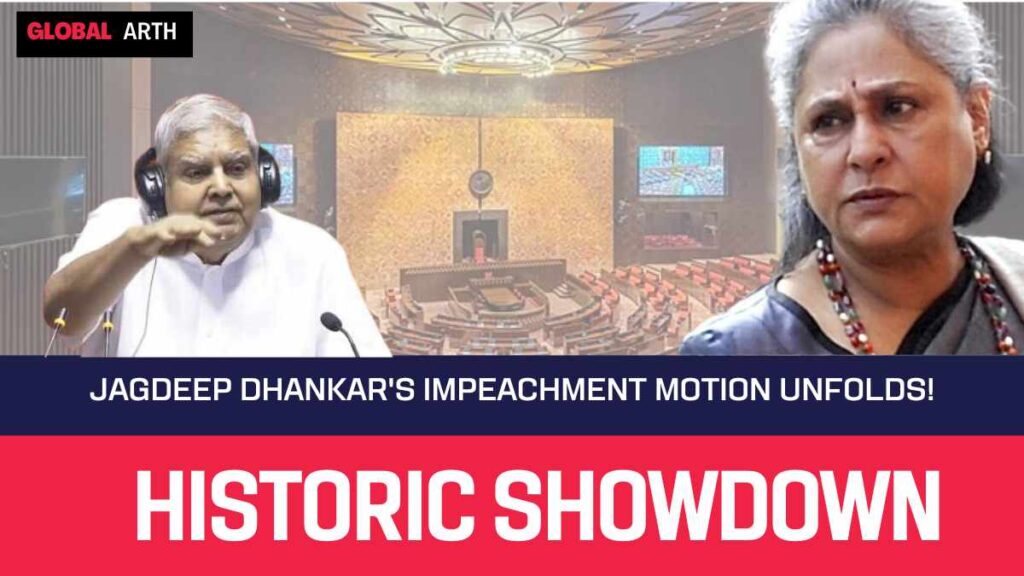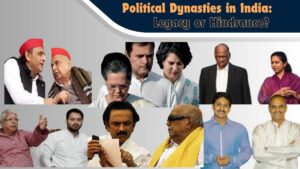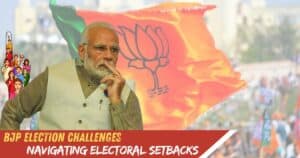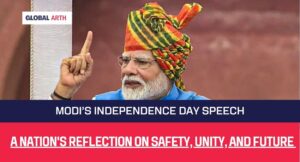Jagdeep Dhankar Impeachment: A Historic Tussle in Indian Politics
In a historic development, the opposition is pushing for a Jagdeep Dhankar impeachment motion due to his contentious role as Chairman of the Rajya Sabha. This unprecedented move in Indian politics reflects growing tensions between the Vice President and opposition parties, potentially reshaping the political landscape in India.

Historic impeachment motion against Vice President Jagdeep Dhankar unfolds in Indian politics
In a dramatic turn of events in Indian politics, the opposition is considering a Jagdeep Dhankar impeachment motion over his conduct as the Chairman of the Rajya Sabha. If successful, this move would mark an unprecedented event in Indian history.

The Impeachment Motion Against Jagdeep Dhankar
The opposition parties allege that Vice President Jagdeep Dhankar, in his role as the Chairman of the Rajya Sabha, has not been impartial in dealing with the opposition members. The tension has escalated over time, leading to a significant incident involving actress and Member of Parliament Jaya Bachchan. She expressed discontent when addressed as “Jaya Amitabh Bachchan” by the Deputy Chairman, highlighting a broader issue of protocol and respect within the Rajya Sabha.
The Process of Jagdeep Dhankar Impeachment
Impeachment in India, particularly for a Vice President, is a complex and rare process. As per Article 67(b) of the Indian Constitution, an impeachment motion must first be introduced in the Rajya Sabha. This motion requires a minimum of 14 days’ notice and must be backed by at least 50 members of the Rajya Sabha. If the motion is accepted, a debate follows, and the resolution must be passed by a simple majority of the members present and voting.
Currently, the Rajya Sabha has 225 active members. For the impeachment to proceed, at least 113 members must support the motion. If successful, the motion then moves to the Lok Sabha, where a similar majority is needed.
Challenges Faced by the Opposition
The opposition, primarily the India Alliance, faces significant challenges in gathering the required support. With the ruling NDA having a strong presence in both houses, the likelihood of passing the impeachment motion seems slim. The BJP and its allies hold 110 seats in the Rajya Sabha, making it difficult for the opposition to secure a majority.
Furthermore, even if the motion passes in the Rajya Sabha, the NDA’s dominant position in the Lok Sabha, with 293 seats, would likely prevent the motion from succeeding.
Why Pursue Impeachment?
Despite the apparent challenges, the opposition is keen on pursuing the Jagdeep Dhankar Impeachment motion to highlight what they perceive as a lack of impartiality and respect from the Chairman towards the opposition members. Instances of microphones being turned off and alleged bias during sessions have fueled this discontent.
The recent incident involving Jaya Bachchan was a tipping point. Her objection to being addressed with her husband’s name in the Rajya Sabha led to a heated exchange, further highlighting the strained relationship between the Vice President and the opposition.
The Political Implications
The move to impeach the Vice President, even if unlikely to succeed, serves as a political statement by the opposition. It underscores their grievances and aims to hold the Vice President accountable for his actions. The tension reflects the broader political landscape in India, where opposition parties are striving to assert their rights and voices against a strong ruling government.
A Historic Context
Historically, no Vice President or President in India has been impeached. The constitutional provisions for impeachment are rarely invoked, and the process is intentionally rigorous to ensure stability in the country’s top offices. This move by the opposition is not just about the current Vice President but also about setting a precedent for accountability and fairness in Indian politics.
The impeachment motion against Vice President Jagdeep Dhankar represents a significant moment in Indian politics. While the outcome remains uncertain, the process itself highlights the ongoing struggle for balance and fairness in the country’s parliamentary proceedings.
As the situation unfolds, it raises critical questions about the role and conduct of those in high office and the mechanisms available to address grievances. Will this motion bring about change, or is it merely a political maneuver?
We invite readers to share their views: Should the opposition pursue this impeachment, and what implications might it have for India’s political future? Please share your thoughts in the comments below.
We value your opinions and encourage lively discussion. Share your thoughts in the comments section, and don’t forget to follow us on our social media platforms for more updates on this developing story. Like our Facebook page, follow us on Twitter, and join our WhatsApp group for the latest notifications and updates.







